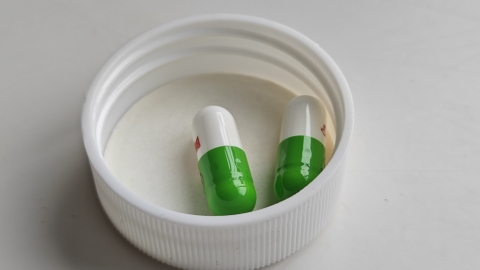What medications are used to treat benign prostatic hyperplasia (BPH)?
Generally, patients with benign prostatic hyperplasia (BPH) can use medications under a doctor's guidance. Commonly used medications include tamsulosin hydrochloride sustained-release capsules, finasteride tablets, dutasteride soft capsules, saw palmetto fruit extract soft capsules, and Pule'an tablets. Detailed information is as follows:

1. Tamsulosin Hydrochloride Sustained-Release Capsules
Tamsulosin hydrochloride sustained-release capsules mainly contain tamsulosin hydrochloride, which helps relax the smooth muscles of the prostate and bladder. It can relieve urinary difficulties caused by BPH and improve symptoms such as frequent urination, urgency, weak urine flow, interrupted urination, and increased nighttime urination. These capsules are suitable for patients with mild to moderate BPH.
2. Finasteride Tablets
Finasteride tablets mainly contain finasteride, which inhibits the conversion of testosterone to dihydrotestosterone, thereby reducing prostate volume. It can provide long-term improvement of urinary symptoms caused by BPH, reduce the risk of acute urinary retention, and benefit patients with larger prostate volumes. These tablets can be taken under a doctor's guidance.
3. Dutasteride Soft Capsules
Dutasteride soft capsules mainly contain dutasteride, which inhibits the production of dihydrotestosterone and reduces prostate volume. They are suitable for patients with moderate to severe BPH, helping to relieve urinary difficulties, lower the likelihood of requiring surgical treatment, and are particularly suitable for patients with significant prostate enlargement.
4. Saw Palmetto Fruit Extract Soft Capsules
Saw palmetto fruit extract soft capsules mainly contain saw palmetto fruit extract, which inhibits prostate enlargement and alleviates urinary discomfort. They can improve symptoms such as frequent urination, urgency, incomplete bladder emptying, and increased nighttime urination caused by BPH, and are suitable as adjunctive therapy for patients with mild to moderate BPH.
5. Pule'an Tablets
Pule'an tablets mainly contain rape flower pollen, which has the effect of strengthening kidney function and consolidating the body's vital essence. They are suitable for symptoms caused by kidney qi deficiency, such as soreness and weakness of the waist and knees, difficult urination, post-urination dripping, or incontinence. These tablets help regulate the condition in patients with BPH presenting with the above symptoms and are commonly used as adjunctive therapy for BPH.
In addition, BPH patients may also use other suitable medications under a doctor's guidance. During treatment, patients should avoid prolonged sitting, perform appropriate pelvic floor muscle exercises, reduce the intake of spicy and irritating foods, avoid holding urine, and maintain urinary system health.









